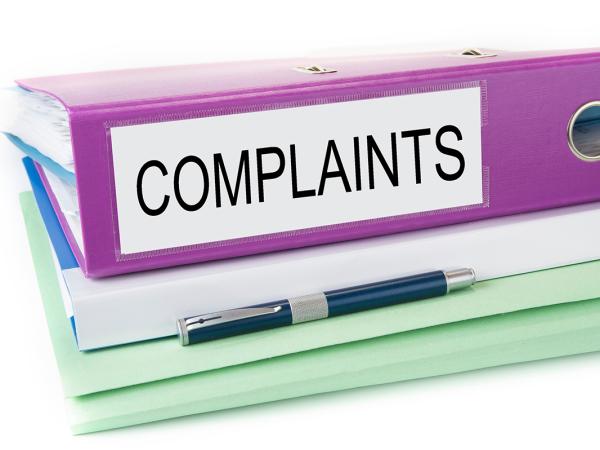Appealing a tax credit decision
HMRC make numerous decisions about tax credit awards and payments. Sometimes, you may disagree with a decision on your award. This page describes the types of decisions that you can challenge formally through the appeals process and how to do that. Changes to the process were made following a court case in January 2024.

Content on this page:
Appeals overview
Many, but not all, of the decisions made by HMRC about your tax credit claim and payments can be challenged by an appeal to an independent Tribunal. This is the formal route to challenge a decision which follows the steps set out in law.
Decisions that can be challenged by appeal
Not all decisions can be appealed, the legislation sets out which decisions carry a right of appeal:
Decisions that can be appealed
- Decisions about how your tax credit award has been worked out and the amount of tax credits you have been awarded
- A decision to charge interest on an overpayment
- A decision to charge a penalty
- A decision to undertaken an enquiry – you can appeal to bring the process to an end
Decisions that cannot be appealed
- A decision that you must repay an overpayment (where the overpayment is correct and you have been paid more than your actual entitlement)
- A decision about the rate of recovery
- A decision about how your tax credits are paid to you
- A decision that your claim is incomplete
As mentioned above, you cannot appeal against a decision that you must repay an overpayment. You can appeal against the decision on the award that led to the overpayment but if you have actually been overpaid and have received more than you are entitled to, you cannot appeal against HMRC’s decision to recover the overpayment.
Instead, you need to use the dispute route. This is used where you have been overpaid but think you should not have to pay it back because it was caused by HMRC’s mistake and you met all of your responsibilities.
Decisions made on or after 6 April 2014
For decisions made on or after 6 April 2014, HMRC have a two stage process to follow. Prior to January 2024, tax credit claimants who wanted to appeal their decision had to ask HMRC to look at the decision again – called a mandatory reconsideration – before they could appeal to the Tribunal. However this process changed following a Court of Appeal decision in January 2024 that found the mandatory reconsideration process was not lawful.
England, Scotland and Wales
You are now allowed, by law, to miss out the first stage and just appeal directly to the Tribunal.
Although you can appeal straight to a Tribunal, HMRC say that you can still ask for a mandatory reconsideration, as the issue may be able to resolved at that stage without the need to go to a Tribunal. If you disagree with the mandatory reconsideration decision, you can still appeal to the Tribunal.
If you decide to ask for a mandatory reconsideration first, you should ask for this within 30 days of the date of the tax credits decision you are challenging.
If you decide not to ask for a mandatory reconsideration, you must appeal to a Tribunal within 1 month of the date of the tax credits decision you are challenging.
Northern Ireland
HMRC say in their online manual guidance that claimants in Northern Ireland may be able to appeal directly to the Appeals Service in Northern Ireland, without request a mandatory reconsideration decision first, although this has yet to be tested in the courts. It may therefore be prudent to use the mandatory reconsideration process if in doubt.
How to request a mandatory reconsideration
You can request a mandatory reconsideration by telephone or in writing (either online or by post) using form WTC/AP. We recommend you send the request in writing and keep a copy of the form. If you send the request by post, we suggest you get proof of postage.
Late requests for mandatory reconsideration are possible, as long as they are made within 13 months from the date on this award notice or letter. If your request for reconsideration is late, you should:
- Explain you are applying for an extension of the 30-day time limit and
- Give reasons why you are asking for a late request.
If HMRC refuse your late request, you can appeal directly to the Tribunal and they will decide if a late appeal can be accepted. This is now similar to the old appeal process (for decisions made before 6 April 2014), where if HMRC refused a late appeal it would be up to the Tribunal to decide whether it could be accepted. We recommend getting advice from a welfare rights adviser if you wish to pursue a late request for mandatory reconsideration that HMRC have refused.
Sometimes HMRC will write to you asking for further information. The letter may tell you that HMRC will not change their decision unless you can send additional evidence and it may ask you to indicate whether you want to withdraw your mandatory reconsideration request (any overpayment would remain) or whether you want to send additional evidence. The letter is silent on the third option which is to allow the mandatory reconsideration to continue. You should seek advice before withdrawing your mandatory reconsideration request.
HMRC will then make a mandatory reconsideration decision. There is no time limit for them to do this other than they must do it ‘as soon as reasonably practicable’. This will either be that the original decision stands (they refuse your request for reconsideration), they change the original decision or they cancel the original decision.
You will then receive a notification letter explaining the decision. This should explain why HMRC have made their decision.
Next steps – appealing to the Tribunal
If you are not happy with the mandatory consideration decision, or if you decided not to ask for a mandatory reconsideration, then you can appeal to an independent Tribunal.
If you asked for one, the mandatory reconsideration notification letter should explain what to do if you are not happy with HMRC’s decision.
Our understanding is that you have one calendar month from either the date of the tax credits decision or, if using the mandatory reconsideration stage, from the date of the outcome of the MR to send your appeal to the Tribunals Service. Outside this time limit, you will need to give reasons why the appeal is late. Following the 2024 court case, you should check these time limits with HMRC.
Prior to 2014, HMRC would send the case to Tribunal, but since April 2014 you are responsible for sending your appeal to the Tribunal Service. This is called ‘direct lodgement’. You can send your appeal to the Tribunal using form SSCS5. If you asked for one, you must include a copy of the mandatory reconsideration notice that you received from HMRC (you should have received two copies). The Tribunals Service publish a booklet to help you fill in the form.
Decisions made before 6 April 2014
For decisions made prior to 6 April 2014, you should send an appeal letter or form to HMRC. You can write a letter but this must include the same information you are asked to give on the official appeal form.
You must appeal within 30 days of the date on the tax credits decision notice (normally the award notice but if you have been refused tax credits it may be a letter rather than an award notice).
Late appeals are possible, as long as they are made within an absolute deadline of 13 months from the date on this award notice or letter. If your appeal is late, you must also include an explanation as to why it was not made in time. If HMRC object to the appeal because it is late, the Tribunal will make the final decision whether to hear the case.
If you are challenging a decision on a joint claim, either you or your partner or both can make the appeal. If just one partner appeals, the other still has the right to attend the Tribunal hearing and should also be sent copies of the appeal papers.
Repaying overpayment debts during an appeal
As soon as you submit your mandatory reconsideration request HMRC should suspend recovery of the debt. Only if you settle your appeal, withdraw your appeal or your appeal is heard by a Tribunal, should the debt start being recovered again.
If you are disputing recovery of the overpayment, rather than appealing the award decision, then HMRC will not suspend recovery and you need to make an arrangements to repay. See our tax credit overpayments section for more information.
If HMRC have made a mistake
Some tax credit decisions can be looked at again, even though the 13-month deadline for appealing has passed. This can happen in cases where HMRC admits to having made a mistake and they agree to simply correct it and change the decision in your favour, without you having to formally appeal. This can happen up to five years from the date when the decision was made so long as you did not materially contribute to the mistake. This is called ‘official error’. There is more information about this on our website for advisers.
Withdrawing an appeal
You can withdraw your appeal if you decide you do not wish to go ahead with it. If HMRC object to this, they must write to you within 30 days. If they do not do this, your appeal is treated as withdrawn.
Getting advice about your appeal
Although appeal Tribunals are less formal than some other court hearings, you should still get advice about preparing your case. Check Advice Local for any local ‘welfare benefits’ advice agencies that might be able to help. Some agencies may also be able to represent you at an appeal hearing.



